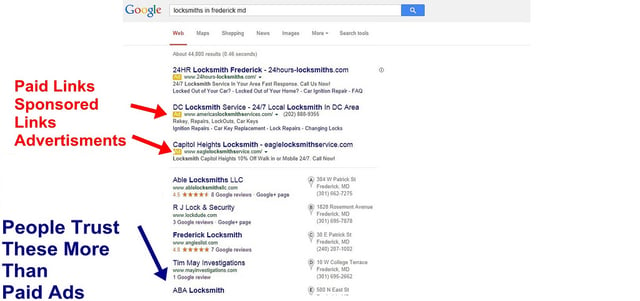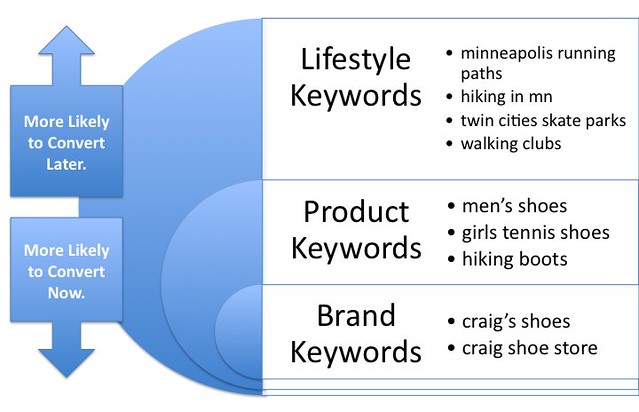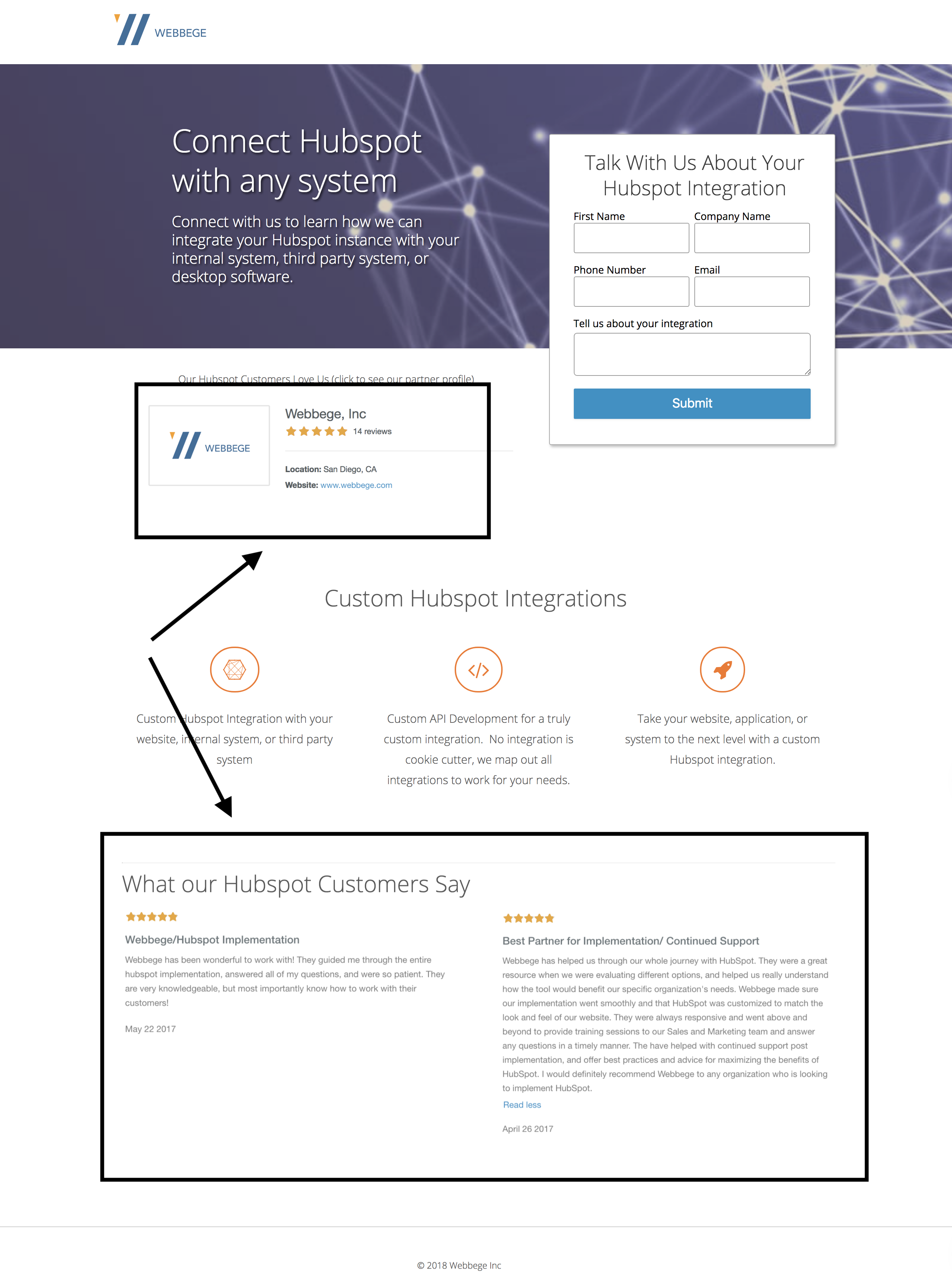Instead of focusing on either Search Engine Optimization (SEO) or Pay Per Click (PPC), we found that using both SEO and PPC in 2017 will maximize visitors to your website. Just think about how you search the Web. Go to Google and search "SEO San Diego". When the results appear, there is a 70% chance that you ignore the paid search results.
In this case, the unpaid, or natural, search results take precedence over paid advertisements. On the other hand, PPC is enticing when you are shopping on Amazon.com and see related products. Let us show you why using these two powerful tools together will grow your web traffic.
Why should you use Organic SEO and PPC in 2017?
Organic SEO is a long-term strategy that funnels visitors to your website from natural search results on major search engines, such as Google. PPC is a short-term solution to increase traffic to your website from paid advertisements. Use these two strategies together to find your best keywords and improve your landing pages and CTAs.
SEO: Your Long-Term Strategy for Traffic from Organic Search
SEO is a strategic, long-term approach to inbound marketing. It is broad in coverage and depends on several factors that measure the amount of time that visitors engage with your website. Statistically speaking, organic SEO is important because it results in higher quality leads.
Studies by SEOmoz and other companies incorporated heat maps and other analysis techniques to find that organic search leads to 5.66x more opportunities (leads and conversions) than paid advertisements. Visitors are more likely to trust your website when it ranks highly on search engines through organic search.

More than ever, visitors are finding and engaging with your business through the Internet. To illustrate this point, search engine queries account for 81% of visitor traffic to websites, according to a study by Jupiter Research. This fact means that your SEO must be exceptional, so that your website appears highly on search engine results pages (SERPS). A great target for success is to be on page 1 within the top-5 natural search results.
Consider an organic search on Google. The statistics show that there is a 67% chance that a user will click on a top-5 search result, and a 71% chance that the user clicks on a result on page 1. High organic search rankings make your business reputable to users and credible in your field.
PPC: Your Short-Term Strategy for Traffic from Paid Advertisements
PPC is a targeted approach to put your company’s advertisement in front of a specific audience based on targeted keywords. A component of Search Engine Management (SEM), PPC is a tactical, fast-response mechanism. It drives immediate traffic to your website, but you must pay whenever a user clicks on the link to your advertisement.
Since PPC can be an expensive investment, it is important to have a knowledgeable firm create and execute your paid advertisement campaigns. If you find this investment too pricey, consider obtaining certifications in PPC (free certifications for businesses offered by Google AdWords and Google Analytics). Remember that once PPC is no longer funded, the traffic from paid advertisements will disappear.
Due to its targeted approach, PPC has a higher conversion rate than SEO. Though less buyers click on an paid advertisement than a natural search result, the buyers who do click are more likely to convert into customers. Thus, PPC is a great option in multiple circumstances.
For firms that sell products rather than services, PPC is a wise, long-term digital marketing strategy. Additionally, PPC is a smart plan for a business that offers a limited-time deal or special event. SEO would take too long to respond to such a time-sensitive opportunity. Finally, PPC is a good investment for brand new businesses that want to spread brand awareness.
Why SEO and PPC are Mutually Beneficial to Your Website
Use the complementary strengths of paid and unpaid search to increase your visitor traffic and conversions. You can use PPC to test keywords, assess the results, and choose the best-performing keywords for your long-term SEO. When carrying out your PPC campaigns, keep in mind these recent changes to Google AdWords that expand and optimize your paid advertisements.
A few metrics to consider are Click Through Rate (CTR) and Cost Per Click (CPC). It is possible that your currently used SEO keywords under perform compared to new keywords! This analysis backs up your inbound marketing strategy with data.
Another plan of action is to use high CPC keywords in your SEO. The higher a CPC for a keyword, the more traffic and conversions demanded by that keyword. Instead of paying highly for a temporary boost in visitor traffic, you can emphasize these keywords in your long-term SEO strategy to fill a strong pipeline of leads.

SEO and PPC can be used in tandem to optimize your landing pages and Calls to Action (CTAs). Create multiple layouts for your landing pages and CTAs and test them with a paid advertisement campaign. You might focus on CPC, CTR, or another metric to compare your designs and select the optimal choice.
In our comparison of organic SEO vs paid search, we found that using both techniques jointly fills in each other's weaknesses. You end up with the most thorough inbound marketing approach for your business.
What We Learned
In 2017, SEO and PPC work better, together. PPC with its quickness can guide keyword selection and landing page/CTA optimization for your long-term SEO strategy. The benefits of SEO and SEM are to increase your visitor traffic and raise brand awareness.
We would love to hear your questions and comments about inbound marketing. What have been your experiences with SEO, SEM, and PPC?
Webbege is a leading San Diego B2B website design and digital marketing agency that provides a suite of marketing automation tools. Our clients range from small businesses to Fortune 500 companies. Let's team up and grow your business.






